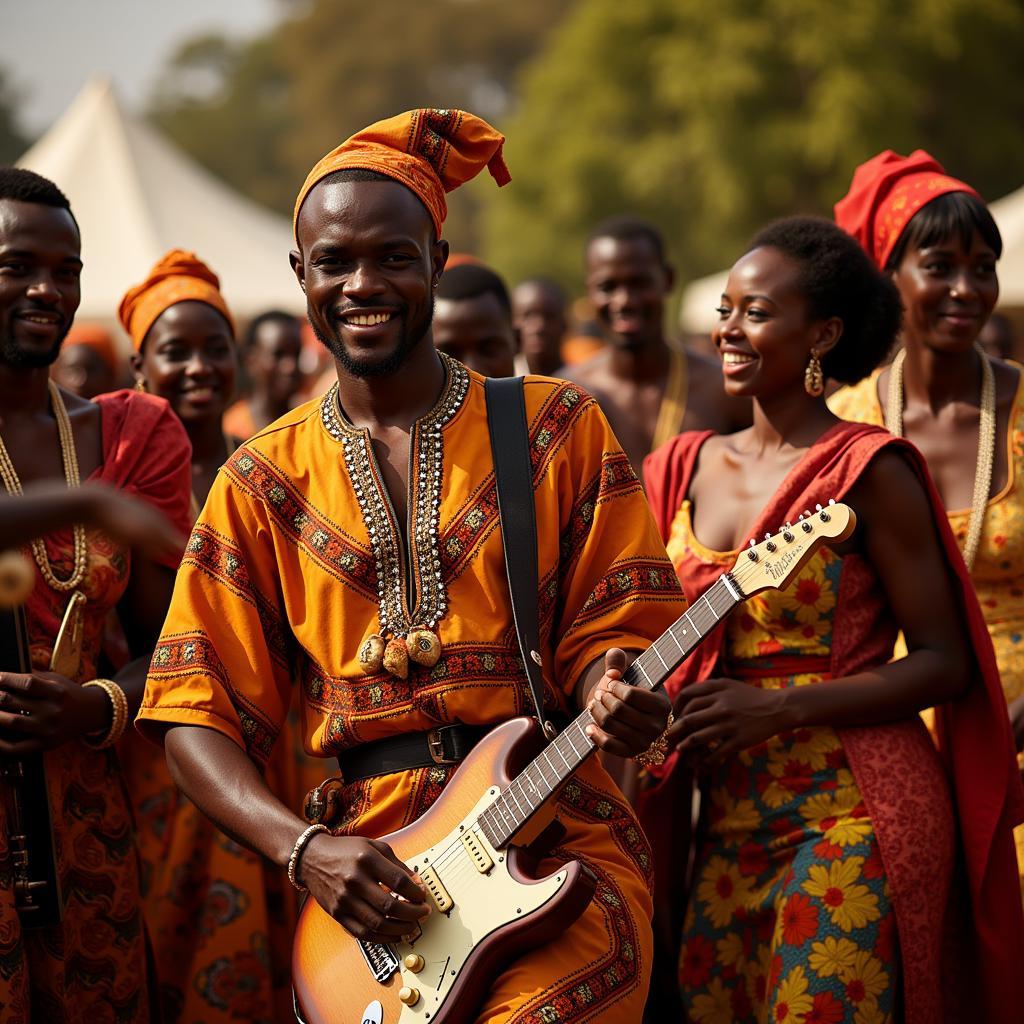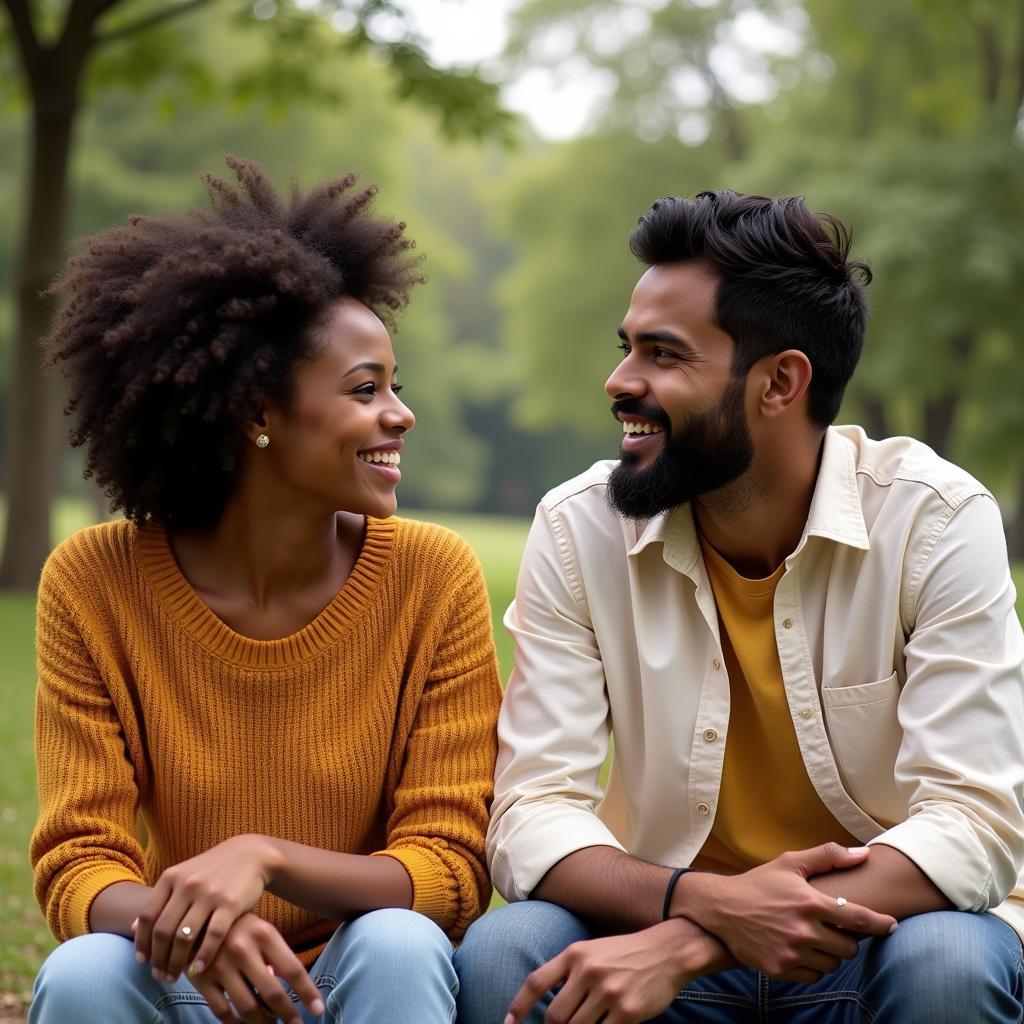Unveiling the Rich Tapestry of African Tribes Before the Wedding
African cultures are renowned for their vibrant traditions, especially those surrounding marriage. Long before the modern wedding, ancient customs within various African tribes dictated courtship, ceremonies, and the very fabric of relationships. These customs, passed down through generations, offer a fascinating glimpse into a time when community and heritage played pivotal roles in shaping the lives of individuals.
A Kaleidoscope of Traditions: Exploring Diversity in Pre-Wedding Customs
It’s crucial to remember that Africa is not a monolith. Within the continent’s vast expanse exist thousands of distinct tribes, each with unique pre-wedding customs. While some traditions share similarities, others are strikingly different, reflecting the diverse tapestry of African cultures.
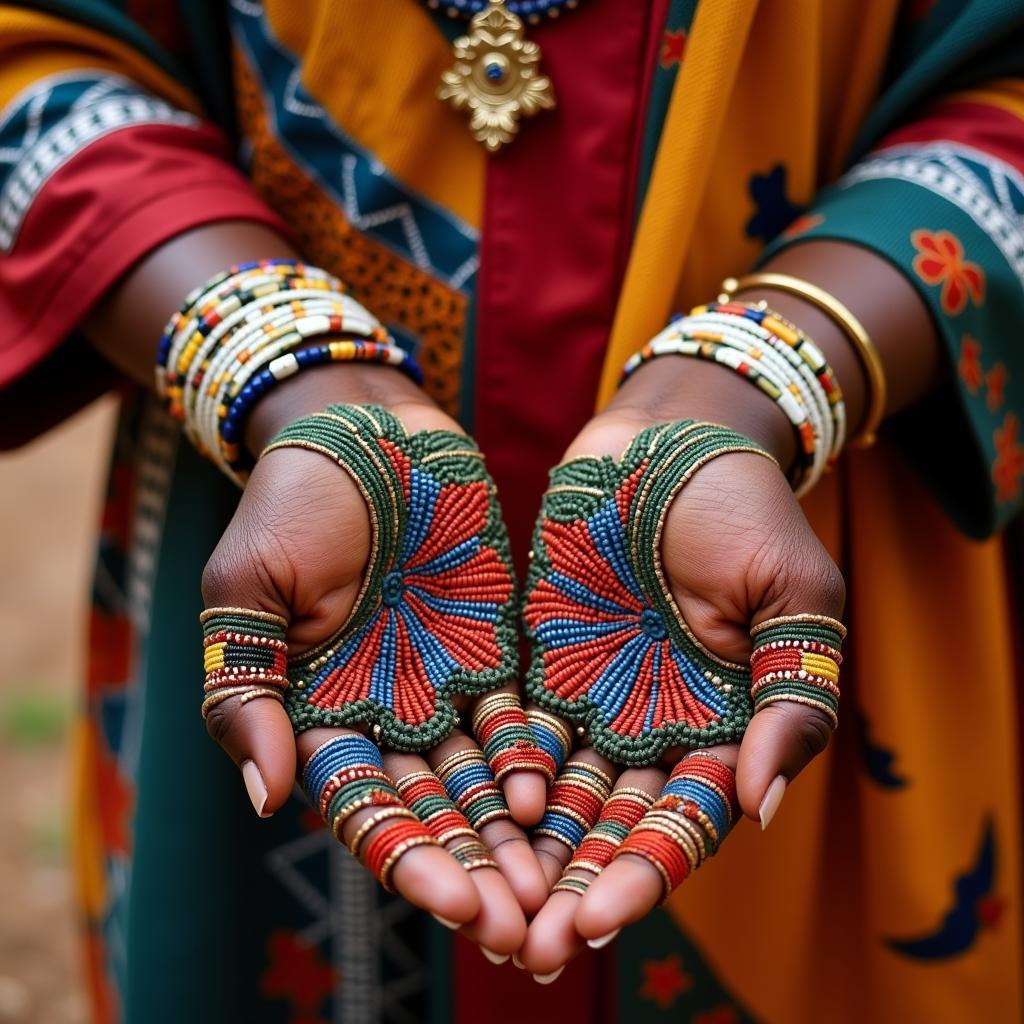 Traditional East African Beadwork
Traditional East African Beadwork
For instance, among the Maasai of East Africa, a young man proves his worthiness for marriage through a display of bravery during a lion hunt. This act of courage not only secures his bride but also elevates his status within the community. In contrast, the Yoruba tribe in West Africa emphasizes artistic expression. The groom’s family presents the bride’s family with elaborately carved calabashes, symbolizing prosperity and the promise of a fruitful union.
The Significance of Family and Community in African Tribal Weddings
While specific customs vary, a common thread unites pre-wedding traditions across many African tribes: the paramount importance of family and community. Marriage is rarely seen as a union between two individuals but rather as a bond between two families or even two villages.
“In many African cultures, marriage isn’t just about love,” explains Dr. Abena Owusu, an anthropologist specializing in West African traditions. “It’s about strengthening social ties, ensuring the continuation of lineages, and maintaining harmony within the community.”
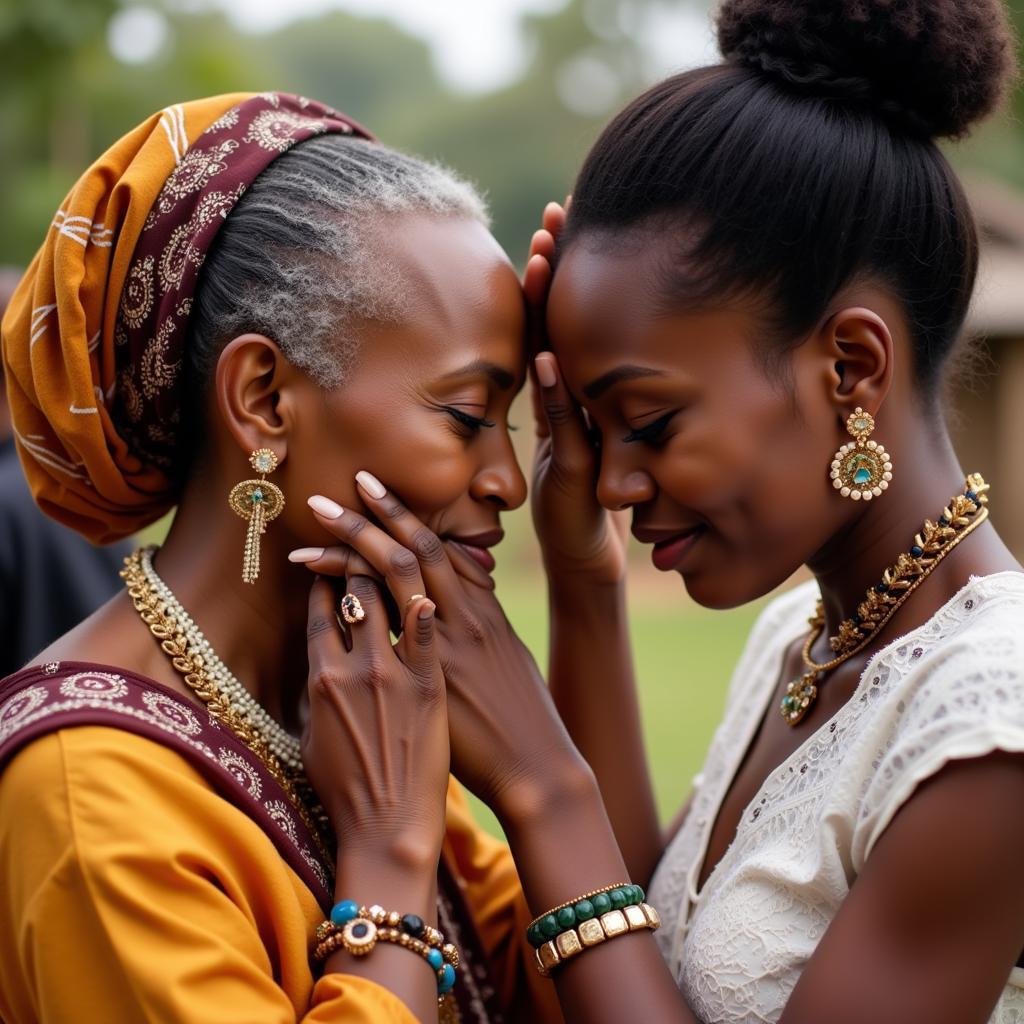 West African Elder Blessing a Couple
West African Elder Blessing a Couple
This emphasis on community is evident in the practice of bride price, prevalent in many African societies. Far from being a transactional exchange, bride price represents an acknowledgment of the bride’s value to her family and community. It symbolizes the groom’s commitment to her well-being and the strengthening of ties between the two families.
Navigating Courtship: Rituals and Expectations
Courtship rituals in traditional African societies often involved elaborate displays and adherence to specific cultural norms. In some tribes, young men would participate in wrestling matches or dancing competitions, showcasing their strength and agility to attract potential suitors. Women, on the other hand, might express their interest through intricate hairstyles, beaded jewelry, or skillfully crafted pottery.
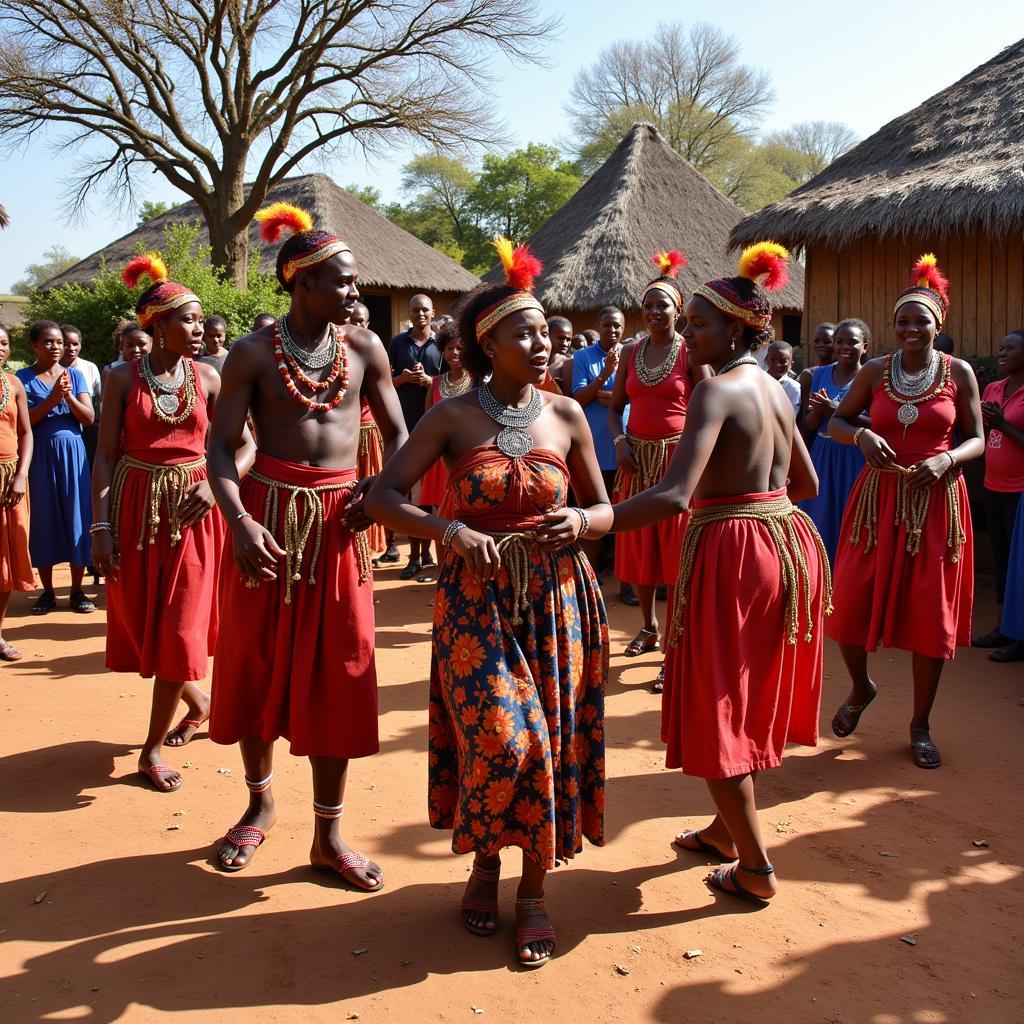 South African Tribal Dance Ceremony
South African Tribal Dance Ceremony
Communication between potential partners often involved intermediaries, typically respected elders from both families. These intermediaries facilitated communication, ensuring that courtship rituals were followed and that any concerns were addressed with sensitivity and discretion.
Preserving Traditions in a Modern World
While globalization and modernization have inevitably impacted traditional African wedding customs, many communities strive to preserve their cultural heritage. Younger generations are rediscovering the beauty and significance of their ancestral traditions, incorporating elements into contemporary wedding celebrations.
The enduring appeal of these pre-wedding customs lies in their ability to connect present generations to the rich tapestry of their past. These traditions offer a profound sense of identity, community, and belonging, ensuring that the spirit of African culture continues to thrive.
